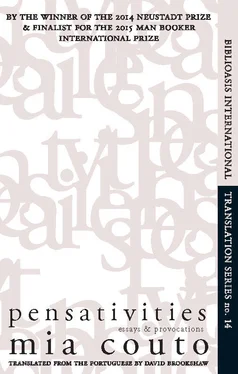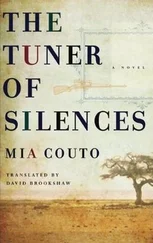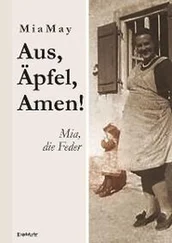There are those who believe that science is an instrument enabling us to rule the world. But I would rather see scientific knowledge as a means, not to dominate, but to find harmony. To create as a means of expression through which we may share with others, including those beings we believe to have no means of expression. To understand and share the language of trees, the silent discourse of stones and stars.
To gain knowledge not in order to claim ownership. But to gain the companionship of the living and non-living creatures we share this world with. To listen to stories that are told to us, at any hour of the day, by these creatures.
Text elaborated for the children of the Lusophone countries,
participating in the Living Science
Program, Portugal, July, 2004.
What Africa does the African Writer Write About?
The theme of this event is the writer’s relationship with the struggle for a world that is more humane and more democratic. One could begin with this question: what is the writer’s responsibility towards democracy and human rights? It is total. For the writer’s greatest commitment is with truth and freedom. To fight the cause of truth, the writer uses an untruth: literature. But it is a lie that doesn’t lie.
However, the writer has other commitments. One of the duties of an African writer is to be willing, in certain circumstances, to stop being a writer, and to not think of himself as “African.”
Let me explain: the writer is someone who should be open to travelling through other experiences, other cultures, other lives. He should be willing to deny his own self. For only by doing this will he journey between identities. And that is what a writer is — a traveller between identities, a smuggler of souls. There isn’t a writer who doesn’t share this condition: of being a creature of the frontier, someone who lives by a window, the window that looks out over interiorized territories.
Our role is to create the guiding principles for a line of thinking that belongs more to us, so that the assessment of our place and our time may cease to be made on the basis of categories created by others, and so that we may go on to tackle that which seems to us to be most natural and beyond question: concepts of human rights, democracy, Africanness. It is precisely our relationship with Africa that I would like to question here. Why this “Africanness,” raised to the level of identity, has been the object of continual mystification.
Some people hurriedly seek an essential quality for what they call “Africanness.” On the surface, they are busy seeking the roots of their pride in being African. But, in the end, they show a similarity to colonial ideology. Africa cannot be reduced to a simple entity, easy to understand and fit into the compendia of Africanists. Our continent is the result of diversities and hybridities.
When we talk of hybridities, we have to be careful, as a hybrid product can seem somehow less “pure.” But there’s no such thing as purity when one is talking of the human species. And if we enter into hybrid relationships, it means that someone else, on the other side, has received something that was ours.
The defenders of African purity redouble their efforts to find its essence. Some set off to prospect in the deep past. Others seek to situate African authenticity in the rural tradition, as if the modernity that Africans are inventing in the urban areas weren’t itself similarly African. This restricted and restrictive vision of what is genuine may well be one of the main reasons why literature in Africa is viewed with suspicion. Literature goes hand in hand with modernity. And we lose our “identity” if we cross the frontier out of traditionalism: that’s what the preconceived notions the hunters of ethnic and racial virginity tell us.
The opposition between the traditional — seen as the pure, uncontaminated side of African culture — and the modern is a false contradiction, for the rural cosmovision is equally the product of exchanges between different cultural worlds. The vast majority of young people from the rural culture of my country dream of being Michael Jackson or Eddie Murphy. In a word, they dream of being black Americans.
“Here I am,” wrote Léopold Senghor, “trying to forget Europe in the heart of Senegal.” The Senegalese poet and statesman never managed it. He was himself a bridge between two continents. Nor could he have been otherwise. To forget Europe cannot be to eliminate the internal conflicts that have shaped our very identities. Europe was inside the African poet and it could not be forgotten by imposition.
Between the invitation to forget Europe and the dream of being American, the outcome can only be seen as a step forward. African intellectuals shouldn’t be ashamed of their predilection for hybridity. They don’t need to fit the image of European myths concerning them. They don’t need artifices or fetishes in order to be African. They are Africans just as they are, urban dwellers with a mixed and tangled-up soul, because Africa has every right to modernity, it has every right to assume its hybridities, which it initiated itself and which make it more diverse and therefore richer.
We need to escape from this trap, and that can only be done by those Africans prepared to accept, without fear, their membership in a culturally mixed world. Some self-styled Africanists, no matter how much they may resist so-called European concepts, nevertheless remain prisoners of these same concepts. Nor is it that they attach importance to them, but rather that importance is accorded for negative reasons. It’s not a question of finding identity by retreating into ancestral purity. The most ferocious defenders of African cultural nationalism are designing houses that are contrary to, but still within the overall framework of the architecture of the Other, of that which we call Western. A fetishistic attitude, however, turned towards customs, folklore, tradition, is of little value. Colonial domination invented a considerable proportion of Africa’s past and tradition.
In fact, the obsession with classifying what is and is not “African” began in Europe. Ethnography and anthropology, disciplines that, until recently, sought to identify essence rather than process, also trod that path. The discoverers of identities were like navigators of the sixteenth century: anxious, some of them, to baptize territories that had long been baptized; others, in a hurry to label population groups whose characteristics they didn’t even know (tribes, ethnic groups, clans).
Think, for instance, of the culture produced by Africans. Instead of valuing the diversity of such production and seeing the book as a cultural product, literary appreciation is often replaced by a more or less ethnographic set of values. The question posed is the extent to which the author is “authentically African.” No one knows exactly what it is to be “authentically African.” But the book and its author still need to undergo this test of identity. Or a certain idea of identity.
Demands are made of an African writer that are not made of a European or American writer. Insistence is made on proof of authenticity. Questions are asked about the degree to which he is ethnically genuine. No one questions whether José Saramago represents Portuguese culture. It’s irrelevant to know whether James Joyce corresponds to the cultural standards of this or that European ethnic group. Why should African writers have to show such cultural passports? This happens because people persist in thinking of the production of these African writers as belonging to the domain of anthropology or ethnography. What they are producing isn’t literature but a transgression against what is accepted as traditionally African.
Читать дальше












